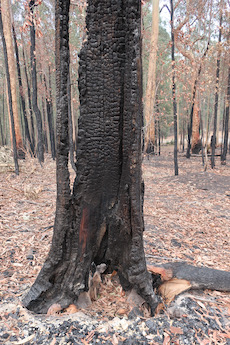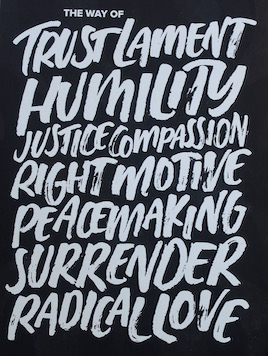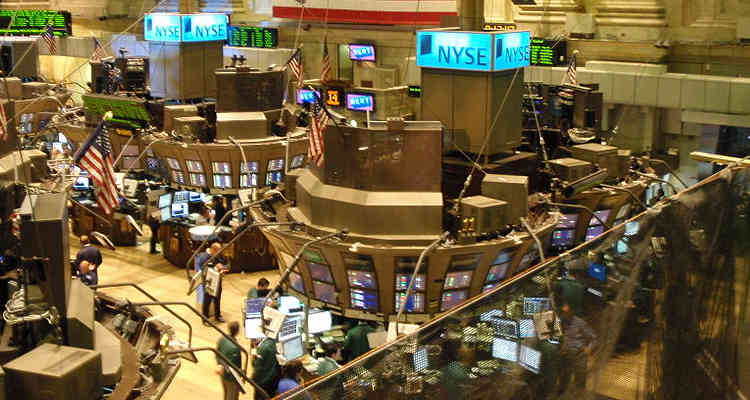I used to be a decent, conservative boy. But in my old age, it seems I have been radicalised.
I think you can blame Jesus for that.
When you’re young you accept what you’re told (sometimes)
Growing up in postwar Australia, the world seemed pretty secure and mum and dad taught us what was right. We saw ourselves as working class, and working people voted Labor back then. (Labor was a mildly socialist party.)
So we learnt to mistrust their right wing political opponents. But it wasn’t a radical capitalist vs socialist thing, it was just that working people voted Labor while rich people didn’t. Simple as that.
In those days the British Empire was coloured red on the maps and spanned the world. And that was a good thing because the British were good people. That was one of the solid facts of life. We never questioned whether colonisation of Australia, India, South Africa, Canada and the US were at all justified. It never occurred to me that the indigenous peoples might not have appreciated being invaded.

My dad had fought in the war in New Guinea, though he never talked about it. But I nevertheless absorbed the fact that our side was always in the right in wars, because we were good people. We stood up to evil when that was required.
Mum and dad weren’t religious, but they sent us boys to Sunday School. The christianity of those days was very conservative. Christians were good citizens. Social justice issues were never raised.
I can even remember a group called the Christian Anti-Communist Crusade running a mid-week meeting at our church, which I attended. Nothing much in Australia was worthy of christian criticism, but those communists trying to destroy our christian country needed to be resisted.
And so when Australia joined the US in fighting the communists in Vietnam in the 60s, I believed it was only right. Australia began to conscript 20 year olds into the army, but I wasn’t a conscientious objector. I did my two years in the Australian army.
But I was never the same again.
Learning to question
Nothing terrible happened to me in my army stint. I didn’t go overseas so I didn’t have to fight. But I observed the male war culture, and for the first time I contrasted it with Jesus’ teachings on loving enemies and turning the other cheek.
So I began to question what I had been taught. I prayed earnestly, perhaps for the first time, to know God and his truth in a new way. I felt it was radical, but I started to think Jesus actually meant what he said in the sermon on the mount.
Closer to understanding Jesus
At first I reconstructed my faith and understanding of Jesus. Then it was a new understanding of the Bible, and new ways to follow Jesus in the church. And then my understanding of the Spirit. My beliefs changed, but life was still the same. Marriage, university degrees, Government career, children, house, respectability all followed, just as you’d expect from a good christian boy.
But fast forward a decade or two, and God’s renewal of my faith started to open my eyes to injustice.
Act justly, love mercy, walk humbly
My growing realisation that following Jesus entailed more than just believing the right things came via events and people that took me by surprise.
On the margins
We spent 16 years in a church that welcomed into its building and community people struggling with life. Several 12 step groups and other support groups met in the building, and we became friends with people who weren’t part of the middle class that I had somehow joined.
For eight years we led a cafe church for them. I visited them in gaol or psych ward or public housing, I attended their weddings and funerals, I listened to their stories. I learnt from them what it was like to be stigmatised and live on the margins, often through no fault of their own, but because they had a mental illness or a difficult upbringing.
Refugees wanting the best for their families
While at that church we assisted two refugee families from Africa to come through many obstacles and settle in Australia. We learnt that they just wanted to look after their families the same as we did. Later I became good friends with a women who regularly visited refugees locked away in detention centres for years without hope.
I learnt a little of the trauma these desperate people experienced because they feared for their families’ lives in their own country and they dared to seek asylum from an Australian government that was callous to their need. In response, I have demonstrated on their behalf outside politicians’ offices, and I am now part of a volunteer group seeking to assist refugees settle in Sydney.

Indigenous injustice
I met an articulate indigenous christian woman who gave me an insight into the injustice suffered when British settlers took over their countries. She told me of stolen land, stolen lives, stolen children and stolen wages. I felt like I’d been hit with a four by two (a small wooden beam) and I knew I couldn’t just do nothing.
So I have worked just a little with her and her fellow first nations people, attended a conference with them where a room full of white people heard the other side of Australia’s history. Each year we mourn with them while Australia celebrates the day white invasion began.
A climate of despair

I trained as an engineering hydrologist and worked for years caring for rivers and catchments. I collected data and analysed it, and something like 40 years ago knew that our climate wasn’t static. When climate change became a well-researched fact, I was reading the papers, talking to the experts and observing the change in the data.
The need for change was obvious, but the fossil fuel billionaires, the media and the politicians conspired to deny or downplay the obvious reality. It’s still happening today, despite the need for action being even more starkly necessary. Wealth and power win! And meanwhile, Australia suffers its fiercest bushfires in recorded history.
Meanwhile, in another country
I have friends and relatives in the US and Europe. I watch what happens overseas with interest, and with some local input. I see the once “free world” polarising, each “side” demonising the other. As a friend said recently, capitalism is morphing into neofeudalism. I see two different christianities emerging and I fear the chasm will only widen. I am drawn to one side much more than to the other.
What’s Jesus got to do with it?
Jesus was much more radical than his conservative followers today. He talked a lot about greed and the perils of wealth.
“Truly I tell you, it is hard for someone who is rich to enter the kingdom of heaven.” Matthew 19:23
“But woe to you who are rich, for you have already received your comfort.” Luke 6:24
“You cannot serve both God and money.” Matthew 6:24
“Watch out! Be on your guard against all kinds of greed; life does not consist in an abundance of possessions.” Luke 12:15
The interesting thing is, Jesus came from a radical family. His mother is reported as saying: “He has brought down rulers from their thrones …. [and] sent the rich away empty.” (Luke 1:52-53) And his brother James was the strongest of all:
“Now listen, you rich people, weep and wail because of the misery that is coming on you….. You have hoarded wealth in the last days. Look! The wages you failed to pay the workers who mowed your fields are crying out against you. …. You have lived on earth in luxury and self-indulgence.” James 5:1-5
Capitalism?
So I can’t see Jesus being a fan of capitalism. He saw only too clearly that wealth, materialism and greed were a trap that not only keep us away from God, but can so easily lead us to mistreat others.
Colonists seeking wealth from the land drove Australia’s first nations peoples from the land they had lived in and stewarded for millennia. One of the motives for mistreating refugees is to protect our wealth and privilege. Too often we refuse to provide adequate social welfare because we want to keep our own wealth. And it is certainly a rapacious desire to keep taking wealth while destroying the world that motivates so much climate change misinformation.
I don’t think there is any perfect political system. But as a christian, I cannot support unbridled capitalism. Capitalism has surely been the source for as much evil as communism.
Colonialism?
Colonialism is a form of exercising power over others, to their detriment. Most of you who read this live, as I do, in countries where indigenous peoples have been mistreated for the sake of wealth and property. You and I didn’t do this, but we most likely benefit from what was taken from others.
European nations colonised and ripped off countries right across Africa and South America, in some cases creating problems that persist to this day. Kidnapping African people and taking them to the Americas as slaves, while perhaps not colonialism exactly, stems from the same willingness to abuse another person’s human rights in the pursuit of pwer and wealth.
In perhaps his greatest song, Blind Willie McTell, Bob Dylan muses on the corruption and condemnation that (he believes) still afflicts America because of the slave trade and the gross mistreatment of black Americans. He infers that America can never be whole until whites express repentance for what their ancestors did, and they still benefit from.
In Australia, we have walked a part of that journey, formally apologising to first nations peoples for the sins of our forebears. But there is more to go in that journey.
As a christian, I see colonialism as a great evil, the outworking of unrestrained capitalism, greed and misuse of power.
So I have been radicalised

I was once a good conservative christian boy. I saw the gospel in very clear terms as a spiritual matter that didn’t give me a social conscience.
But “I was so much older then, I’m younger than that now” (Dylan again). I’ve entered the kingdom of God as a little child and found there was much to learn, much to grieve over. And much good needing to be done in response.
Jesus, the kingdom of God, and the gospel, have radicalised me. And I suspect the journey has only just begun!
Main photo: New York Stock Exchange (Wikipedia). Other photos by unkleE. “The way of” text comes from a banner at a Mark Scandrette seminar about the “9 Beats” – the 9 Beatitudes of Jesus (Matthew 5:3-11).





Thankyou for sharing 🙂
Unbridled capitalism is evil to be sure, Marxism is just another form of repression.
Unless we want to live a subsistence life, our current form of government seems to be the best compromise. The rich pay more taxes (unless you are Morrison / Friedenberg) and we are all free to give as much of our income as we like to good causes, and many very wealthy capitalist people do this.
Colonisation is an unfortunate fact and hasn’t been good for indigenous people anywhere it happened, but it’s not just a secular thing, eg the Crusades. People who are convinced whether by religion, power, political ideology or money that they are the only ones in the right are dangerous to anyone in their way and it’s still going on, eg Tibet, Taiwan or elsewhere.
So how does your ‘radicalism’ express itself ? In political activism ? We certainly need a change of government in Australia for many reasons, I hope we get the one we deserve. 🙂
Merry Christmas and a Happy New Year.
I think our form of government may be the best there is, but I think the rich and powerful have learnt how to subvert and control. Look at climate inaction, the rorts of the present Australian government, politics in the US, etc. So the rest of us need to be smarter to make this form of government work.
My radicalism expresses itself in my attitude and values, which have changed a lot as described in this post. I am also now politically involved. I have been involved with a couple of grassroots political organisations aimed at electing a good independent in my electorate at the next election. THis is part of a larger movement where I expect more than a dozen such independents to be standing at the election. My hope (and many others’ too) is that these independents may have the balance of power and so force LNP and ALP to take the climate action we all know is necessary but which the rich and powerful have made difficult for them.
Merry Christmas and best wishes to you too.
I hope those Independents get in too.
I think we are seeing a cracking of the old political structure especially with the exposure of the lack of morality in Parliament and the continuing decline of trust in government and their (the LNP at least) unwillingness to expose themselves to the scrutiny of an ICAC like body.
Good luck in your efforts. I usually vote Independent where I can if they measure up to standards.
Thanks.
I am surprised by the claim that Jesus would not be a “fan” of capitalism. Jesus was not a political philosopher. He did not set out any theory about the way society should be organised. Jesus preached to people as individuals. His comments about the rich should not be used as justification for any kind of political action. We can have a debate about, for example, levels of taxation or regulation of the banking industry, but let’s not bring Jesus into it. Those who do try to bring Jesus into it are in danger of making Christianity look ridiculous.
Unfortunately, this has been going on for a while now. You see it on numerous “Christian” blogs. It is often like reading a column in a leftwing newspaper. Let’s get back to preaching the gospel.
Hi David, I’m interested in your comments. I don’t suppose anyone has to be a political philospher to have an opinion on political matters. Do you not think that the four sayings I quoted at the start of this post have political implications?
I’m also wondering what you think are the essentials of Jesus’ gospel?
Hi, unkleE.
Where I live there is a debate between the two main political parties as to what the top level of income tax should be. In my opinion it would be unwise for either side in the debate to appeal to the teachings of Jesus. On the other hand, a very large amount of money is lost each year in tax avoidance. If someone wanted to preach a sermon on the subject of tax avoidance, I would endorse it. Those who follow the letter rather than the spirit of the law on paying taxes should be looking to their consciences. Those two examples illustrate my point that Jesus preached to people as individuals and did not set out any theory about the way society should be organised.
The essentials of Jesus’ gospel would probably be “love God and love your neighbour as yourself”. However, we should remember that when Jesus was preaching his gospel, his mission was not yet complete. The Crucifixion and the Resurrection were still in the future.
Hi David,
“In my opinion it would be unwise for either side in the debate to appeal to the teachings of Jesus.”
If anyone tried to suggest Jesus would support a particular number, I’d agree with you. But surely the principles Jesus taught (love for neighbour, care for the poor and disadvantaged, being wary of materialism, etc) would be relevant principles to bring to the discussion? And might then support an argument for greater equality (or at least less inequality)?
” Jesus preached to people as individuals and did not set out any theory about the way society should be organised.”
Again, surely those individuals should be applying those teachings to every life situation, including taxation and voting? Which would lead to one societal or political theory over another?
“The essentials of Jesus’ gospel would probably be “love God and love your neighbour as yourself”. However, we should remember that when Jesus was preaching his gospel, his mission was not yet complete. The Crucifixion and the Resurrection were still in the future.”
I’d agree with your first sentence, but add “because the kingdom of God is here”. But I’m a little surprised you think his teachings incomplete because he hadn’t yet died and risen. How do you think that fact changes his teaching? Do you think we can just put his teachings aside because of that? Of course I think we have to understand the context, but Jesus predicted his death and resurrection so surely he would take account of them in his teaching?
I think these things are well worth exploring. Thanks.
Hi unkleE
The point about income tax is that it is compulsory. Normally, there is no spirit of generosity when people pay tax – although there may be an exception if someone could avoid paying tax but chooses not to. Since I am not among the top earners, it would be easy for me to vote for a party that promised to raise the top rate of income tax. In effect, I would be compelling the top earners to pay extra whether they wanted to or not. This would not necessarily be wrong but it would be a very different situation from the one in which Jesus asked the rich young man to give up his wealth.
It is true that Jesus predicted his death and resurrection. However, the disciples were bemused by this. They did not understand until Jesus rose from the dead and their understanding was further increased by the sending of the Holy Spirit. So we have to make a distinction between the period of Jesus’ ministry and the post-Easter period. Paul preached Christ crucified. He could not have done that before the crucifixion actually happened. The point is worth making because some people think there is too much focus on Paul and not enough on the teaching of Jesus.
Hi David,
So suppose you were deciding who to vote for in an election, and suppose the issue that would lead you to vote for one party or the other was taxation. If the teachings of Jesus weren’t a significant basis of your decision, what would be?
Sure the disciples didn’t understand Jesus until later, but surely he understood himself? Do you think we can and should disregard his teachings because of what you say here? Or maybe give them less authority than Paul’s teachings?
Hi unkleE
The teachings of Jesus are a very significant basis for my own behaviour. The same should be true for any Christian. Deciding how society should be run is a different matter. People can’t be compelled to be charitable. They can be compelled to give up their money through taxation. To some extent that is justifiable. Raising money through taxation is a legitimate means of paying for public services. If the aim is to make the wealthy less wealthy then it ceases to be legitimate. I don’t see anything in the teachings of Jesus to suggest otherwise.
I am not suggesting that the teachings of Jesus should be disregarded or that they are superseded by Paul. It is just that being a follower of Jesus acquired a different meaning post Easter. After the Resurrection, a follower of Jesus was someone who believed that Jesus was Lord and that he had been raised from the dead (Romans 10:9). This is what separates Christians from those who may admire Jesus’ teachings but don’t accept the miraculous.
Hi David,
“Deciding how society should be run is a different matter. People can’t be compelled to be charitable.”
I think this is a fair point. Just because I try to live by christian ethics doesn’t mean other people in my country must also – that is their choice. But in a democracy, a majority decides public policy, in this case deciding on what among many possibilities should be the chosen taxation rates. For that, we all vote for the party that best represents what we think is right. That being the case, if I want our society to be a little less unequal (because I see that as a christian teaching), shouldn’t I vote for that?
“If the aim is to make the wealthy less wealthy then it ceases to be legitimate.”
The aim is to have a “fair” taxation system, and “fairness” is a value judgment. So shouldn’t I express my values as a christian just as others express their values? I can see that imposing something on another person, like forcing black people to segregate shouldn’t be legitmate, but we have a taxation system and we are just deciding on the level of taxation for different incomes, so surely that is legitimate? Why would you think otherwise?
“After the Resurrection, a follower of Jesus was someone who believed that Jesus was Lord and that he had been raised from the dead “
But how does that fact change or lessen Jesus’ teachings on wealth? Can you explain that because I can’t see it. I think believing that (as I do) makes my commitment to his teachings (applied to our day under the guidance of the Holy Spirit) even stronger.
Hi unkleE
I’m not quite sure what you are saying here. Are you saying that a society in which some people are rich and some people are not is unfair and that it is the job of the tax system to do something about this? I would regard that as dangerous. I think it is fair that the rich make a greater contribution to public expenditure since they are in a position to do that. But I don’t see their greater contribution as a means of reducing the “unfairness” of unequal wealth. If you think otherwise then I have to say that I disagree strongly. And I will leave it at that.
Again, I should emphasize that I don’t disregard the teachings of Jesus. I think that the Christian view has changed the world immeasurably. Concern for the vulnerable is a Christian virtue that is generally accepted. The secular world has absorbed Christian ethics. However, the secular world does not confess that Jesus is Lord or believe that God raised him from the dead. Therefore the secular world is lost. It doesn’t matter how closely it follows an ethical system which is derived from the teachings of Jesus. That will not be enough.
Hi David,
“I’m not quite sure what you are saying here. Are you saying that a society in which some people are rich and some people are not is unfair and that it is the job of the tax system to do something about this?”
I think the way we describe something can affect how we see it. I wouldn’t describe this the way you have. I think a fair tax system recognises that some people, often through no fault of their own, are unable to work or find work. Others receive very low pay, sometimes hardly enough to sustain their lives. And we need to recognise that our systems of goverment, finance, capitalism, trade and commerce can all create the conditions that lead to these outcomes, as well as benefiting the rich. That being the case, if we allow these systems to continue, we can require those who benefit directly from the system to assist those who are victims of the system. It’s only fair. That seems to be a christian wy to look at it. And it is accepted in principle in most societies. The only question is the matter of degree. Do you disagree with that?
“I should emphasize that I don’t disregard the teachings of Jesus. I ….. It doesn’t matter how closely it follows an ethical system which is derived from the teachings of Jesus.”
I agree with all you say here. But that isn’t the question I’m asking. I asked you what you thought were the esentials of Jesus’ gospel, and you replied: “The essentials of Jesus’ gospel would probably be “love God and love your neighbour as yourself”. However, we should remember that when Jesus was preaching his gospel, his mission was not yet complete. The Crucifixion and the Resurrection were still in the future.” I am asking whether that statement means you think our gospel should also be ““love God and love your neighbour”, or whether this statement means you want to modify Jesus’ gospel in some way. Thanks.